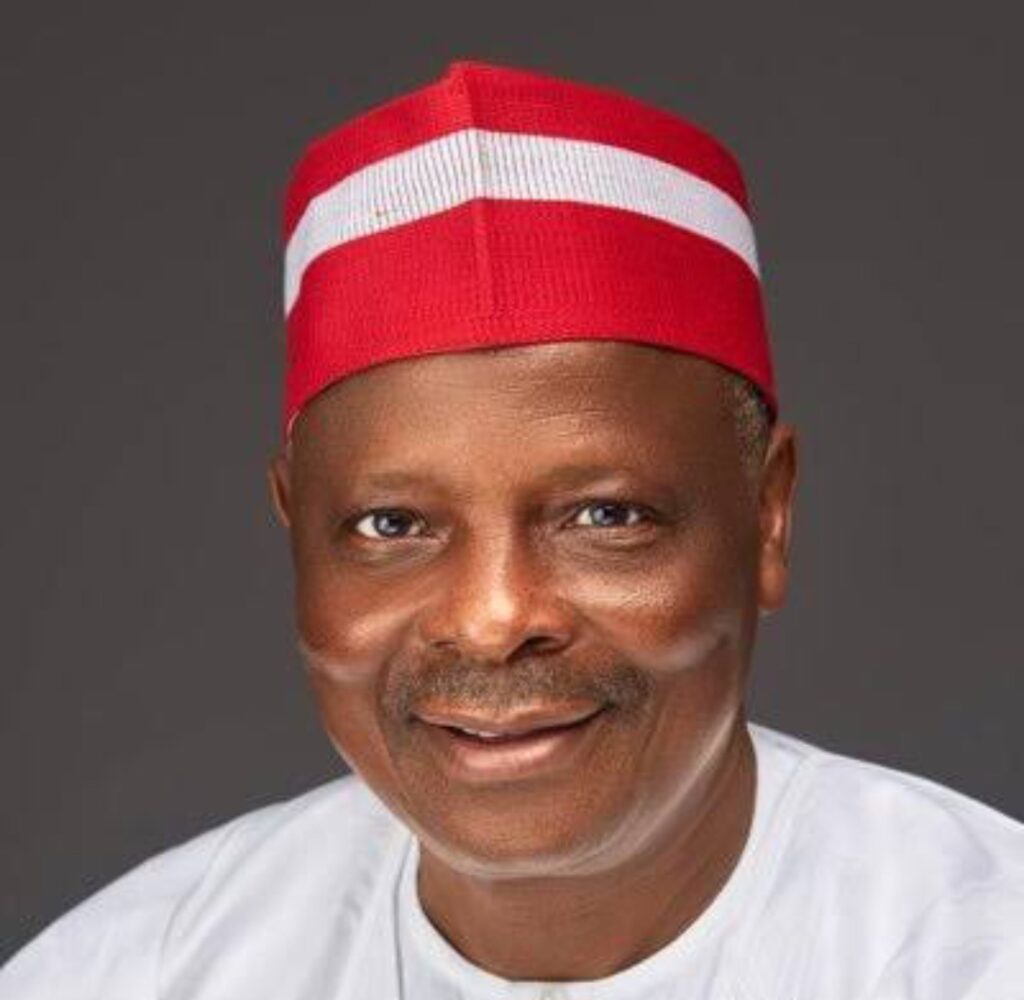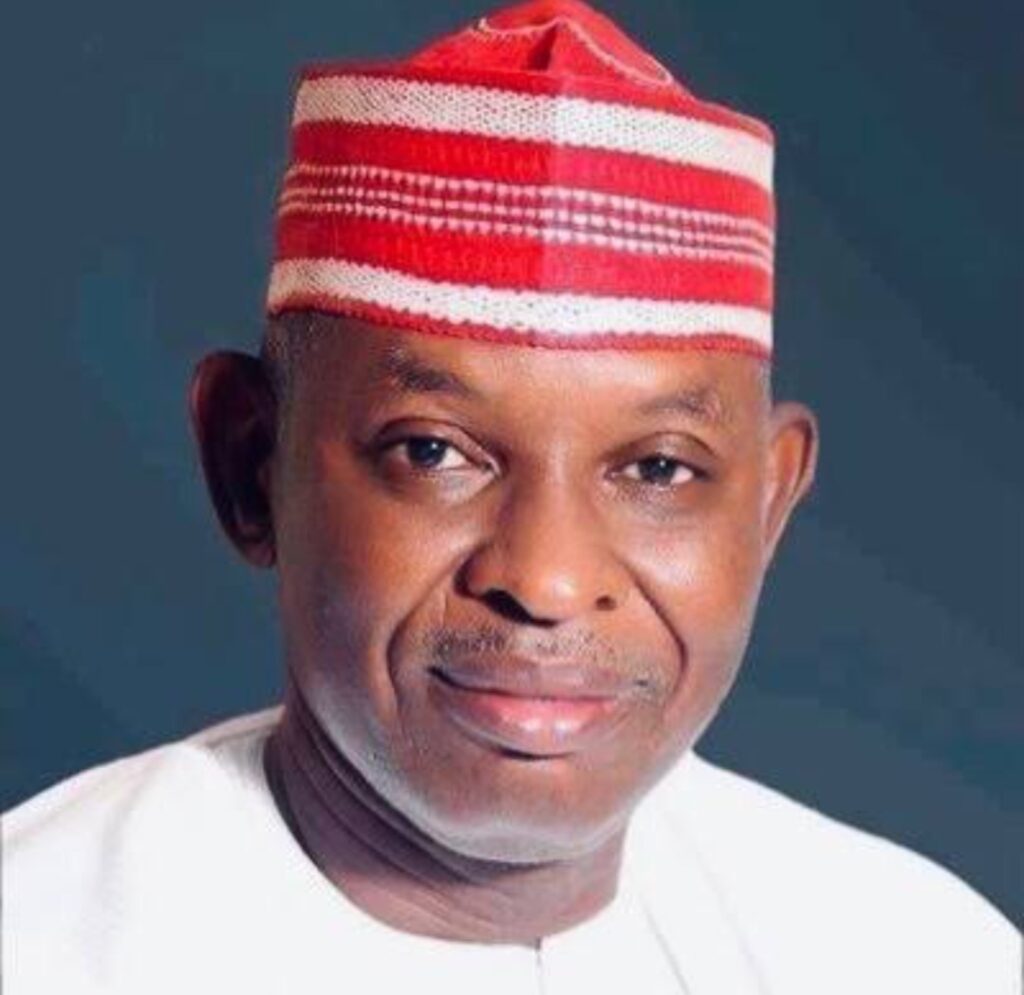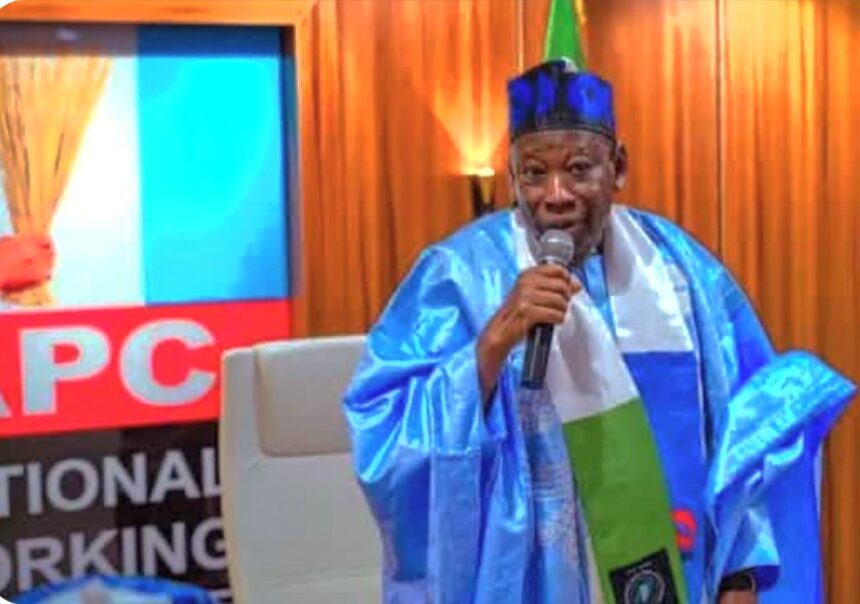Political crisis: I Weep For Kano Northern Nigeria By Ruqayyah Hamidu Muhammad
The behind the scenes battle between the two prominent political figures of Kano state is affecting the political progress of the state and the entire northern region. The ongoing conflict in Kano State is more than a local issue; it is a matter of significant concern for the political progress and unity of the entire northern region of Nigeria.
This rivalry has deep implications for governance, development, and regional solidarity. I am deeply shocked that we still have millions of sane individuals that support and encourage such attitude, let me open your eyes to the consequences of this battle, perhaps you see things differently and unite against it; …CONTINUE READING


1. Undermining Governance in Kano State
Kano State, as a political and economic hub in Northern Nigeria, plays a pivotal role in the region’s progress. A divided leadership in Kano has severe consequences:
Distracted Leadership: Instead of focusing on policies and programs that benefit the people, resources and energy are being diverted toward political squabbles.
Delayed Development: Political instability creates a vacuum in decision-making, stalling critical infrastructure projects, economic initiatives, and social welfare programs.
Administrative Paralysis: Rivalries often lead to factionalism within government institutions, causing inefficiency and lack of coordination in service delivery.
2. Weakening Northern Political Unity
The northern region has traditionally relied on unity and consensus-building to maintain political influence in Nigeria. This rivalry is fracturing that cohesion and creating vacuums.
Factions and Divisions: The clash between the prominent political leaders polarizes supporters within Kano and across the north, creating camps that weaken the collective bargaining power of the region.
Loss of Regional Focus: Instead of collaborating to tackle shared issues such as insecurity, poverty, and youth unemployment, almajiranci, street begging, leaders are consumed by intra-party or inter-party conflicts.
3. Negative Perception of Northern Politics
These conflicts project a negative image of northern politics at the national and even international levels.
Leadership Crisis: Persistent fighting portrays northern leadership as disorganized and more interested in personal power than public welfare.
Reduced Influence: National political stakeholders may view the north as politically unstable, leading to reduced confidence in the region’s ability to present a united front.
Public Disillusionment: Ordinary citizens may lose faith in the political process, seeing it as a game of ego and personal ambition rather than a means to address societal challenges or issues
4. Impact on the Region’s Developmental Agenda
Kano’s position as a leader in commerce, culture, and population means its political health directly affects the broader northern region.
Economic Repercussions: Political unrest in Kano disrupts trade, investment, and business activities, which are critical for the northern economy.
Policy Inconsistency: Frequent political changes or standoffs can lead to abrupt shifts in policies, discouraging long-term development initiatives resulting in huge economics loses.
Stalled Regional Projects: Projects that require regional collaboration such as those in agriculture, education, and transportation may be delayed or abandoned due to lack of coordination.
5. Insecurity and Social Fragmentation
Political instability often exacerbates existing challenges, including insecurity:
Rise in Violence: Political feuds can trigger violent clashes between supporters, leading to loss of lives and property, further destabilizing the region.
Exploitation by Insurgents: Groups like Boko Haram and bandits exploit political disunity and weak governance to expand their influence in the region.
Ethno-Religious Tensions: The conflict may deepen existing ethno-religious divides, as politicians use identity-based rhetoric to mobilize support, leading to long-term social fragmentation.
6. Erosion of Political Ideals
One of the most damaging effects of this rivalry is the erosion of political ideals in the north:
Focus on Personal Agendas: The rivalry overshadows ideological debates and policy-driven leadership, reducing politics to a contest of personalities.
Youth Disenchantment: Young people in the north may become disillusioned with politics, seeing it as a tool for personal enrichment rather than societal progress.
Diminished Legacy: The contributions of Kano’s historical political leaders, who prioritized unity and development, are undermined by the current discord.
7. Spillover Effects Across the Northern Region
The instability in Kano has a ripple effect on the entire northern region’s politics and progress:
Divisive Influence: The rivalry may spill over into other states, encouraging similar conflicts among leaders who are aligned with either of the two factions.
Weakening of Political Alliances: Regional political blocs, such as those formed during elections, may lose their effectiveness due to infighting and loss of trust.
National Implications: The north’s reduced influence on the national stage could lead to diminished representation and marginalization in key decision-making processes.
Recommendations for Resolving the Conflict
To address the negative impacts of these conflicts and restore political progress, we need to come together as a people and implement the following;
Respected northern elders and traditional rulers (if we have any) should be encourage to come forward and mediate between these figures, emphasizing the importance of unity for the progress of Kano and the entire region. There is also need for civil societies members and the electorates to hold the leaders accountable, demanding and encouraging a focus on governance, collaboration on non-partisan issues such as insecurity, poverty alleviation, and youth empowerment rather than personal feuds. It is also high time that His excellency Governor Abba Kabir Yusuf activates the activities of the established council of elders, to promote dialogue and collective decision-making, which will eventually radiate within the entire northern region for a transformative Journey.
In conclusion, we need to shine our eyes and know that the rivalry between the prominent figures in Kano is more than a localized political battle. It is a threat to the northern region’s unity, development, and influence. Resolving this conflict should be given optimum and immediate priority and sustained efforts from stakeholders at all levels to refocus leadership on governance, regional collaboration, and addressing the pressing needs of the population than personal gain and ego.
Finally Allah says: “And hold firmly to the rope of Allah all together and do not become divided.. (Surah Al-Imran 3:103).
Ruqayyah Hamidu Muhammad PhD
Executive Director NASSDEV
Email: [email protected]
Tel: +234(0)8032014161



